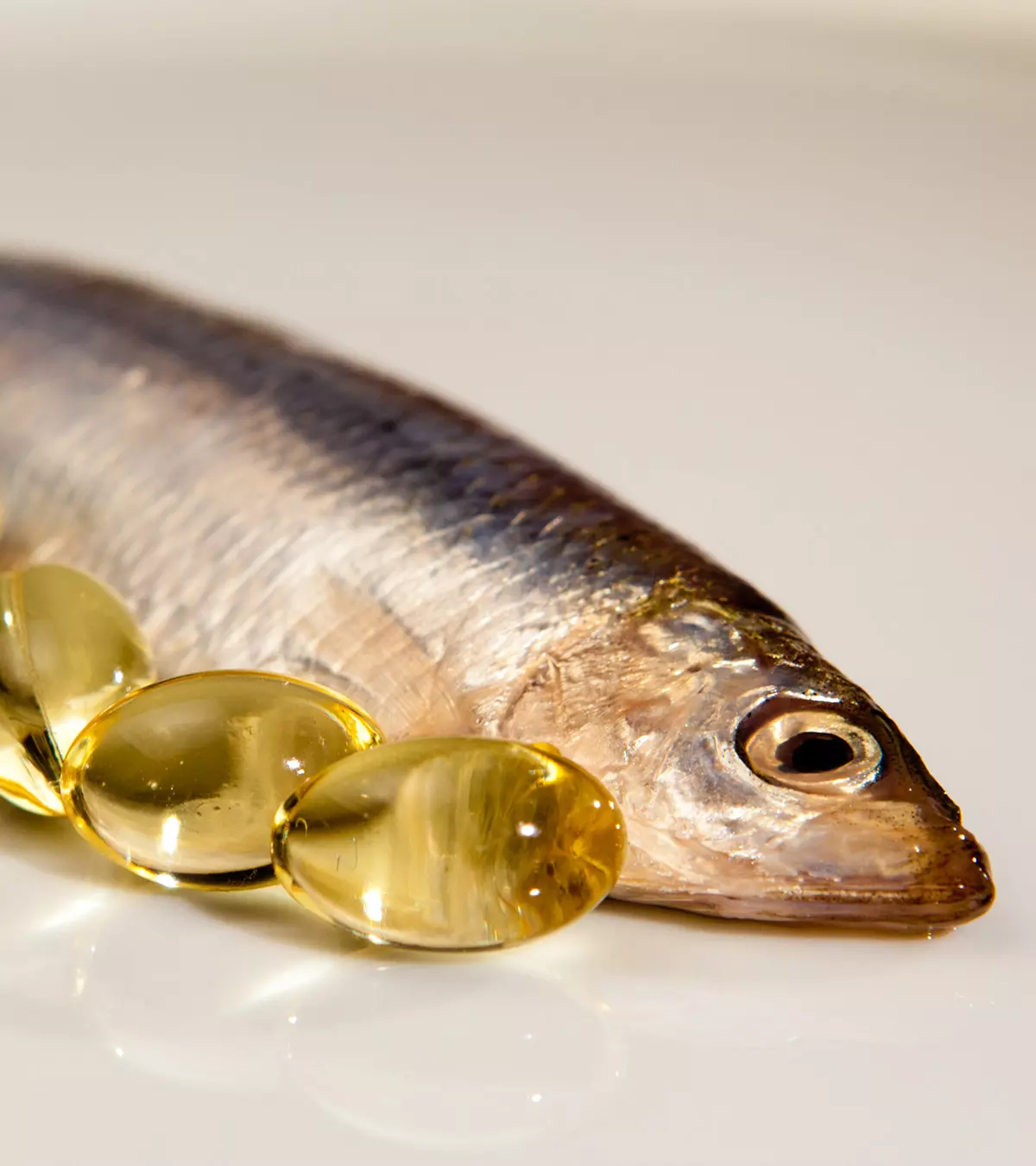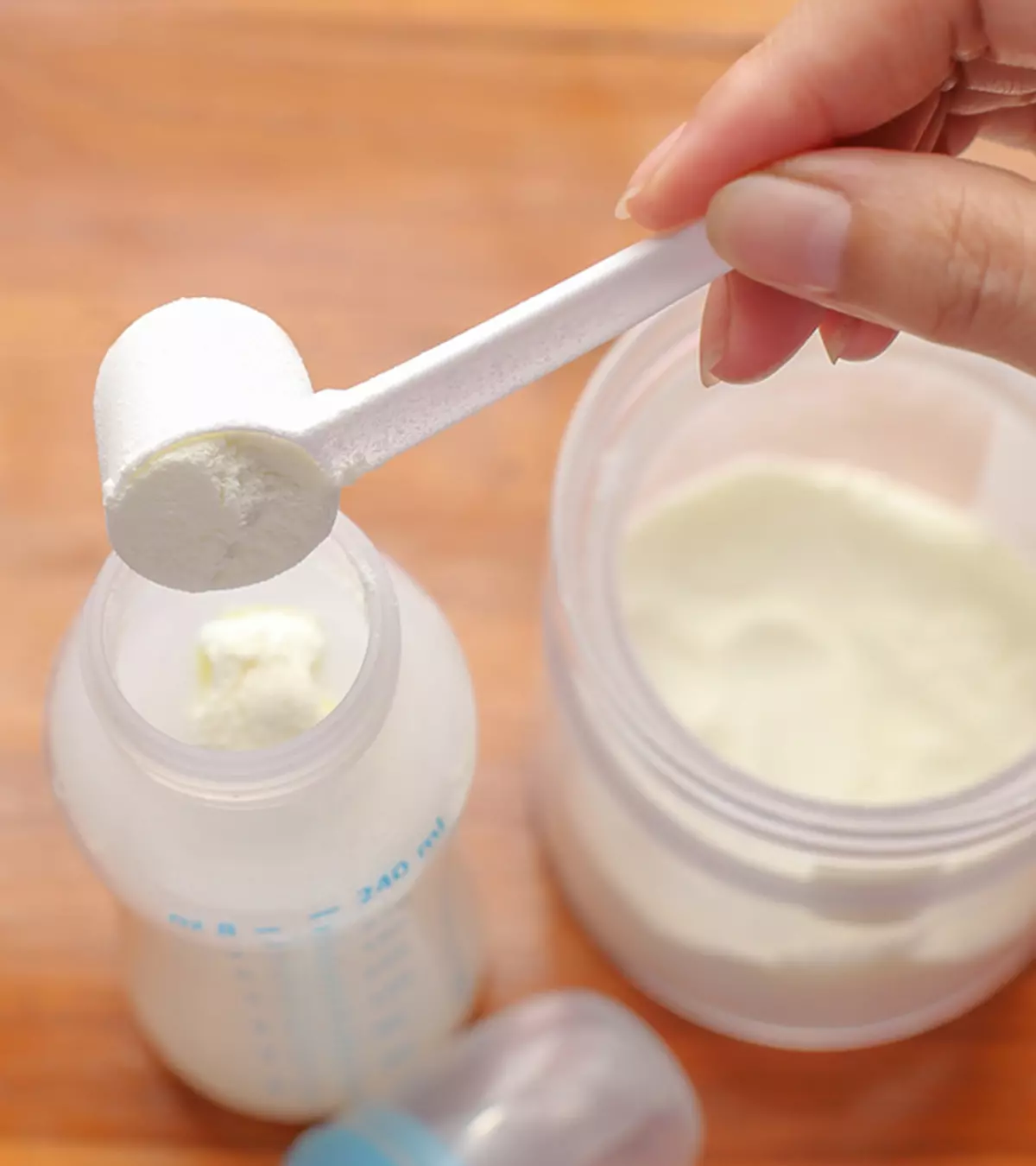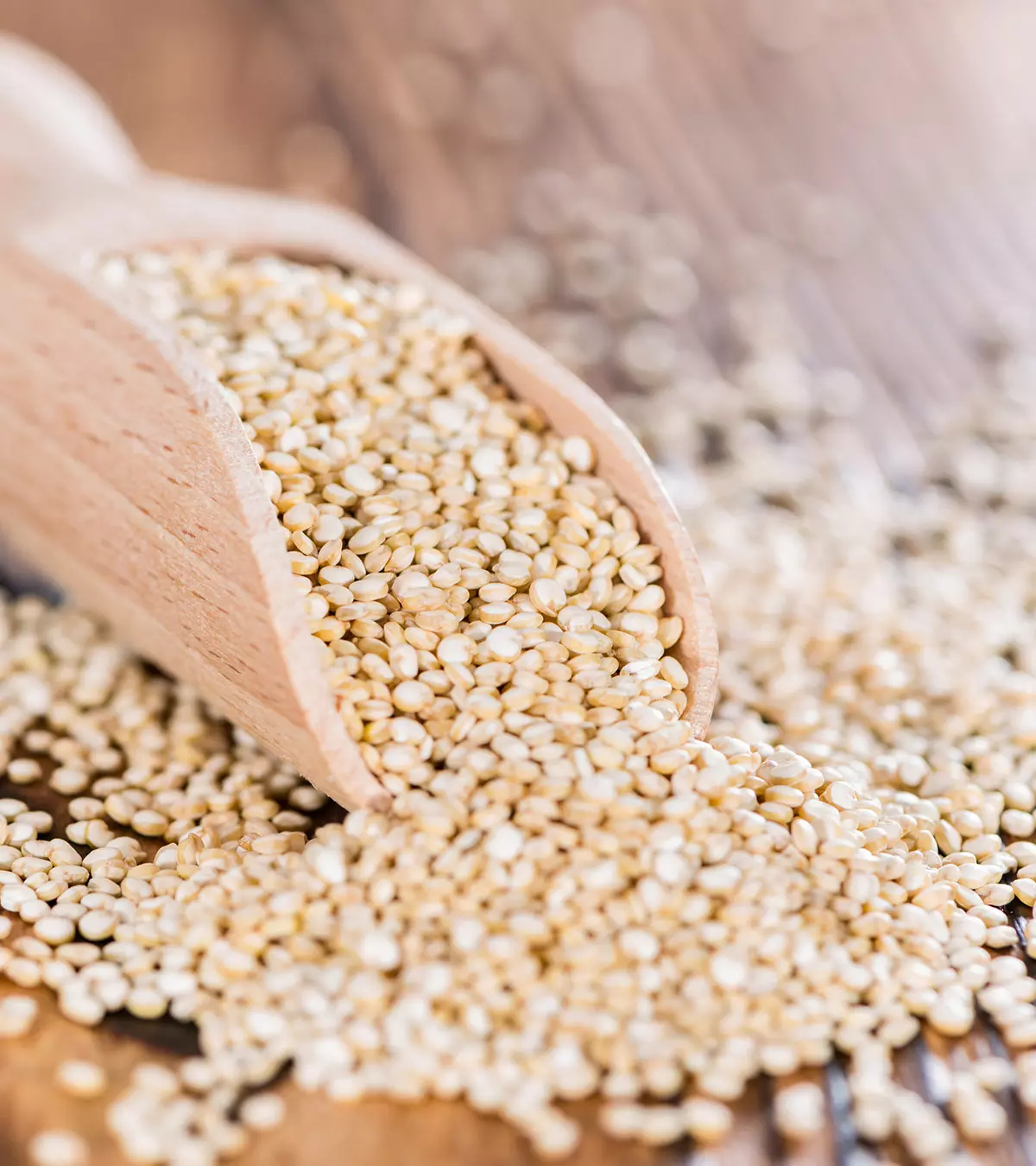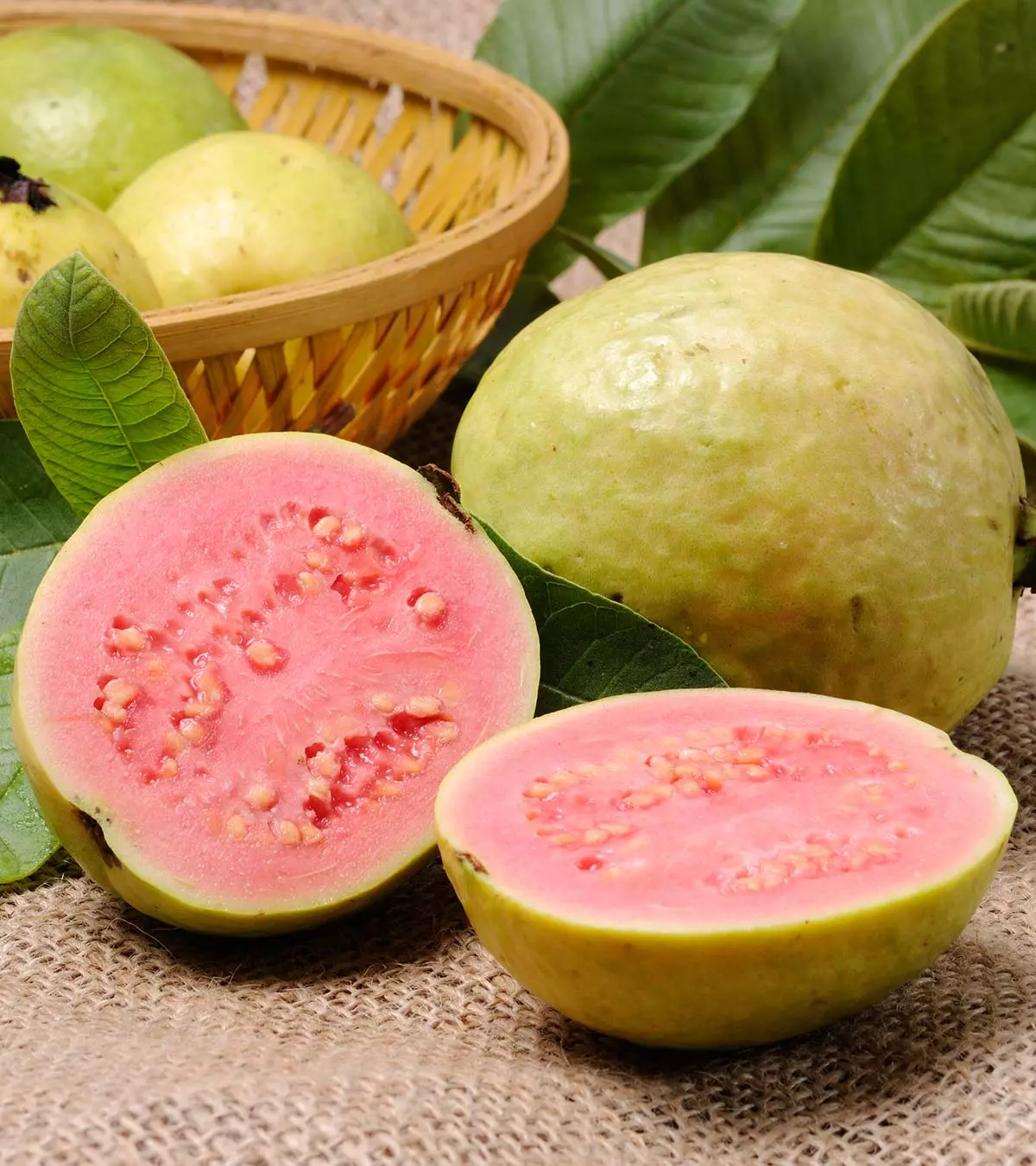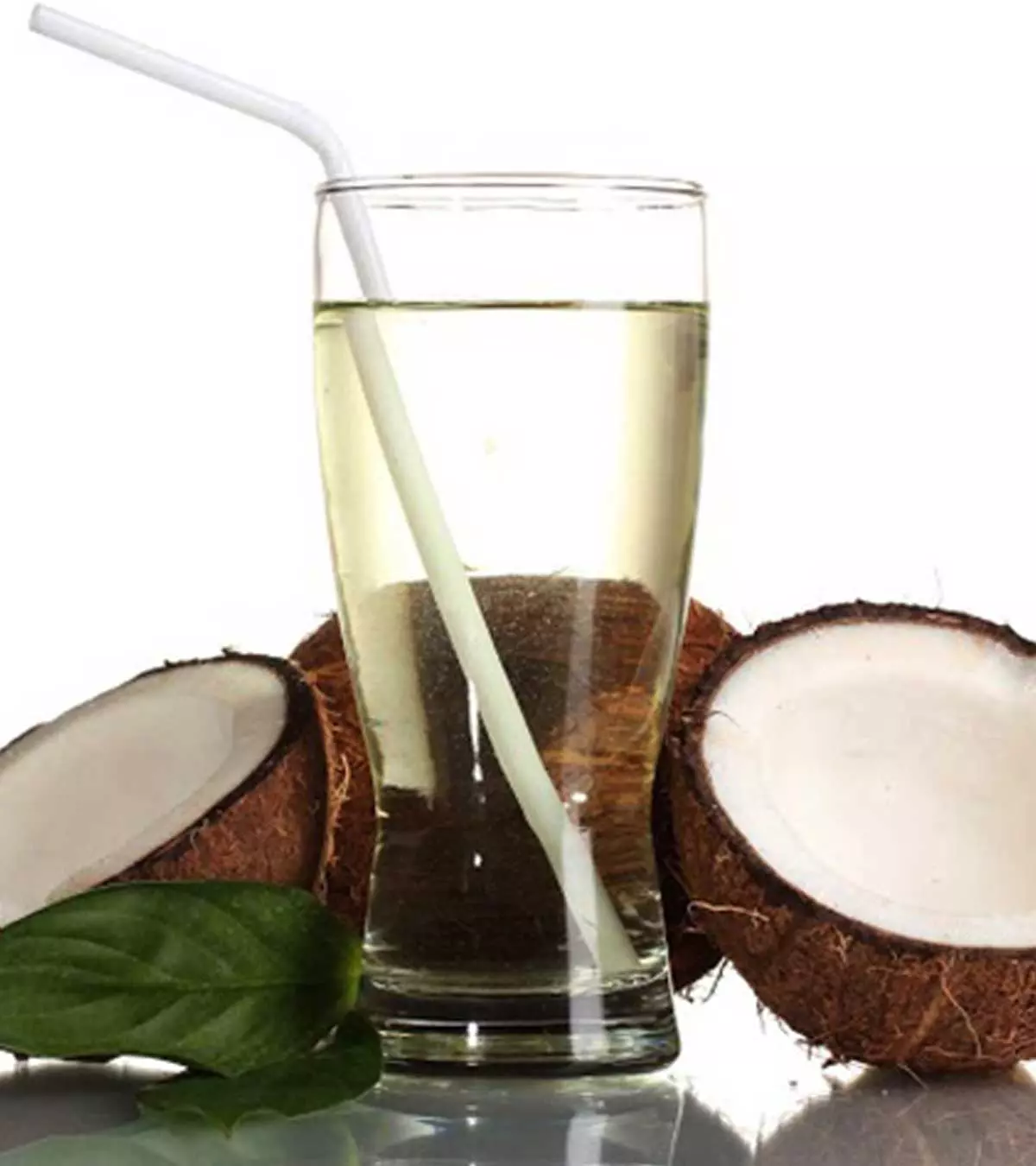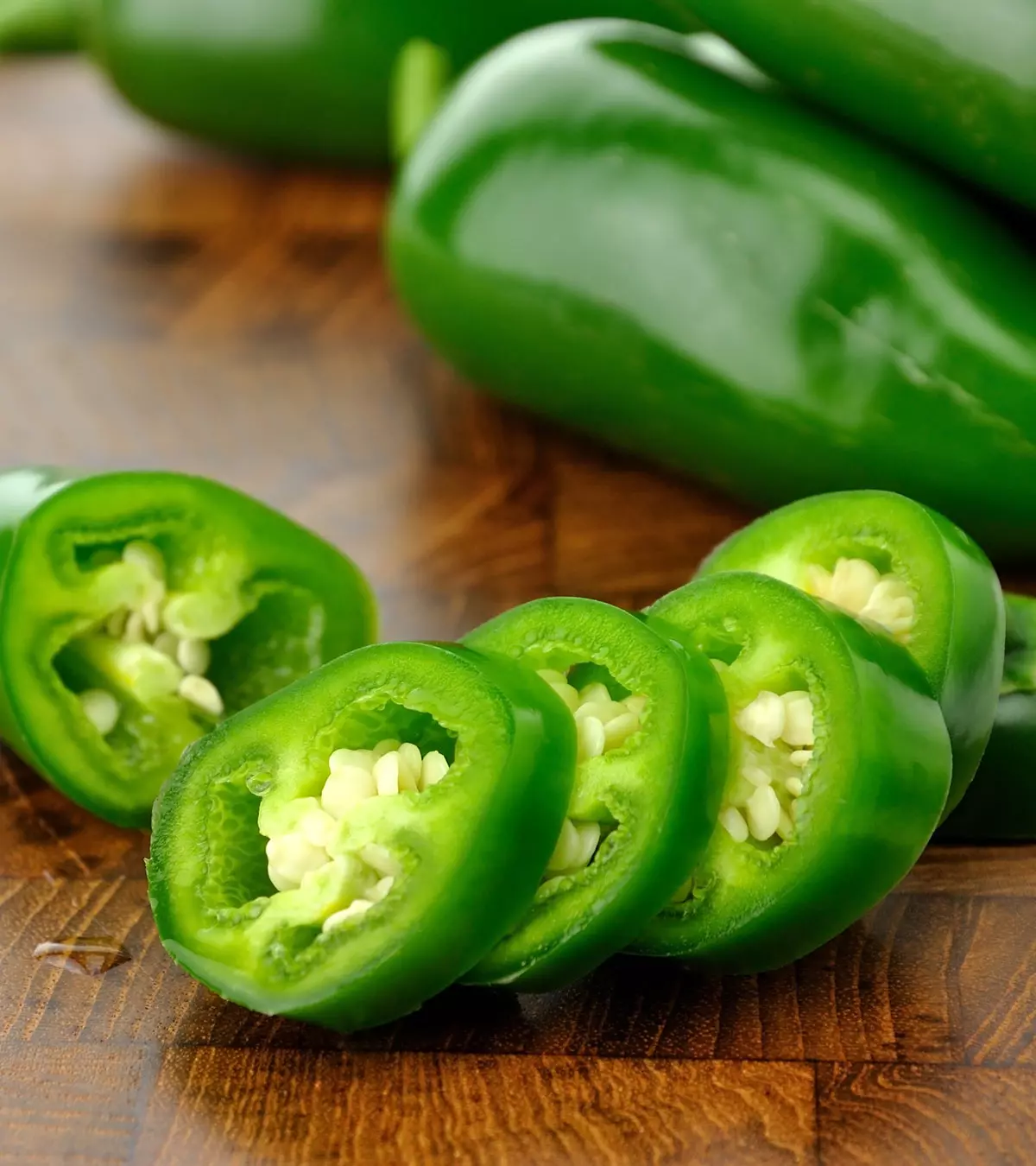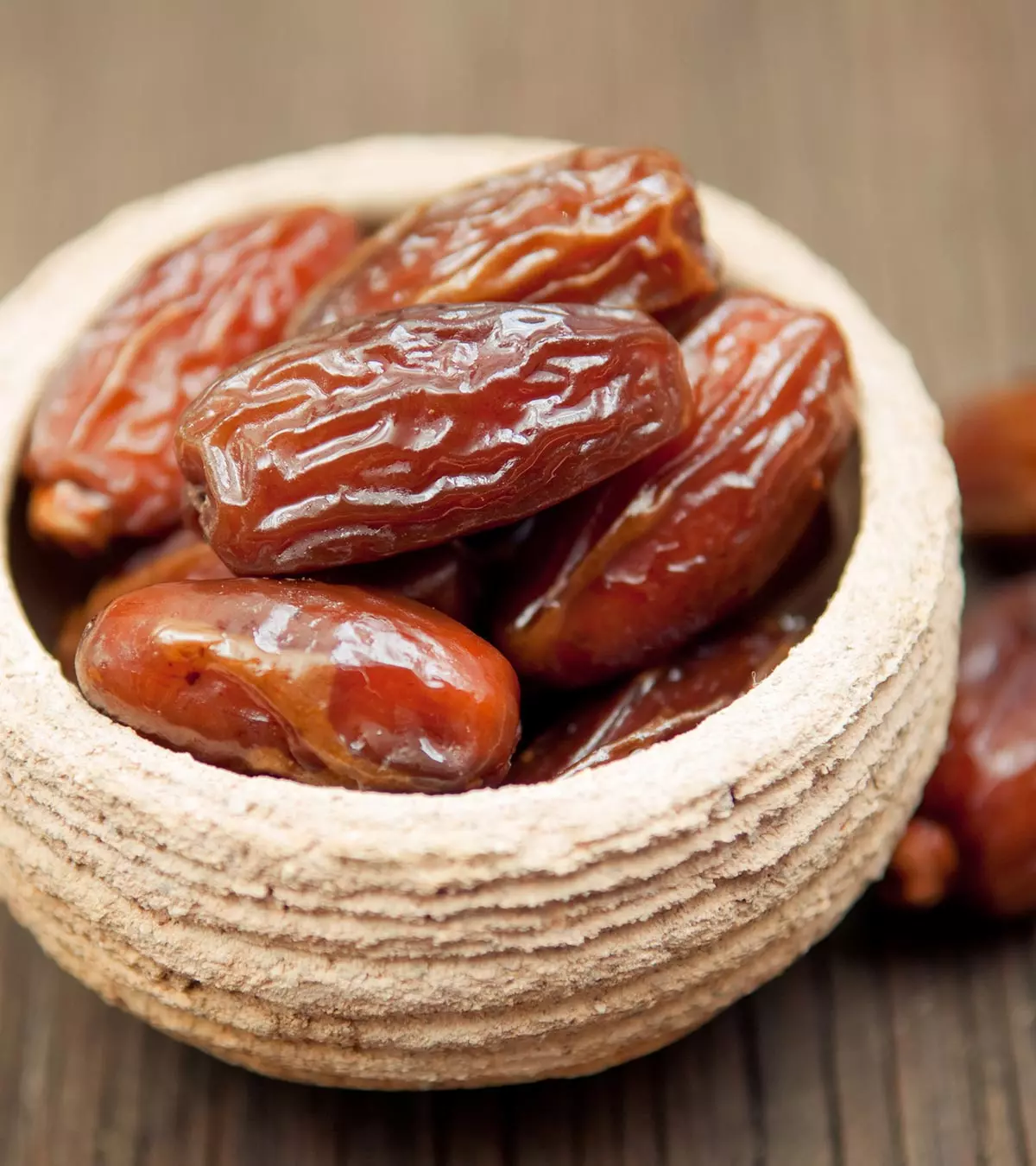
Image: Shutterstock
Moderate amounts of ginger tea during pregnancy are considered safe for consumption. Most pregnant women experience nausea during the first trimester. Research suggests that consuming herbal teas like ginger tea may help to reduce nausea in many expecting mothers (1). However, it is strongly recommended to seek your doctor’s guidance before including it in your prenatal care plan as a medication to avoid any fetal or adverse maternal health outcomes. However, there is no standardized dose recommended for achieving these benefits. Higher amounts may result in heartburn or stomach ache in some pregnant women. You may try various ginger tea recipes for relief from nausea. Read on to know the benefits, safety, risks, and recommended servings of ginger tea in pregnancy.
Key Pointers
- Pregnant women can have ginger tea in moderation safely.
- Ginger tea can help reduce morning sickness and nausea during pregnancy.
- Ginger tea may also have benefits for digestion, immunity, throat comfort, blood sugar levels, muscle soreness, and nutrient absorption.
- For expectant mothers, it is recommended to consume up to 1 gram of ginger, no more than 2 cups of ginger tea per day.
- However, excessive use of ginger tea may lead to bleeding, blood coagulation issues, heartburn, and cardiac consequences.
Is It Safe To Drink Ginger Tea During Pregnancy?

Image: Shutterstock
Ginger tea is an ayurvedic concoction and is believed to be safe when consumed in moderation. It has a nice aroma, taste, and could be helpful in managing nausea and vomiting, especially in your first trimester (2). However, it is good to limit the daily consumption to one gram of ginger (3).
What Are The Possible Benefits Of Ginger Tea During Pregnancy?
Following are a few of the many benefits caffeine-free ginger tea offers for pregnant women.
1. Morning sickness
Ginger is known to ease and control this problem. Consuming the tea first thing after waking up and before bedtime might help control morning sickness (4).
2. Digestion
Consuming a glass of ginger tea may stimulate the functions of the digestive tract (5).
3. Immunity
The anti-inflammatory properties of ginger may help combat diseases and prevent infections (6).
4. Soothes throat
The soothing nature of ginger tea provides quick relief to a sore throat, cough and flu symptoms (7).
5. Blood sugar levels
Ginger tea helps in insulin build-up and could be helpful in maintaining glucose levels in the body (8).
6. Muscle fatigue

Image: Shutterstock
Ginger is known to have anti-inflammatory and pain-reducing properties and aids in pregnancy-related pains and decreases inflammation (9).
7. Nutrient absorption
Ginger stimulates your body’s ability to absorb nutrients.
Additionally, ginger tea contains trace amounts of vital nutrients like vitamin B6, vitamin B3, iron, Vitamin C, and potassium. Some people add lemon juice to their ginger tea or water for detoxification . However, anecdotal evidence exists for this. Hence, consult your doctor before consuming this concoction.
Woo Elaine, a mother shares, “I was trying not to drink too much coffee/ tea, and I had a slight aversion to milk/dairy products, especially when my morning sickness occurred during weeks 7-8. I realized that drinking ginger tea helped greatly reduce nausea and indigestion. Good to drink before or after meals. In fact, I still drink some ginger tea now to relieve mild heartburn and as a digestive aid (i).”
How Much Ginger Tea Can You Consume When Pregnant?
You may take about two cups of ginger tea a day. Use up to one gram of ginger root and divide into two to three servings (10).
Ginger Tea Recipes You May Try
Here are a few interesting ginger tea recipes with tasty variations for you to try.
- Lemon ginger tea: Add a teaspoon of grated ginger to brewing black tea. Turn off the flame and squeeze half a lemon juice in it. Add a dash of honey and a few mint leaves to the brew. Drink hot.
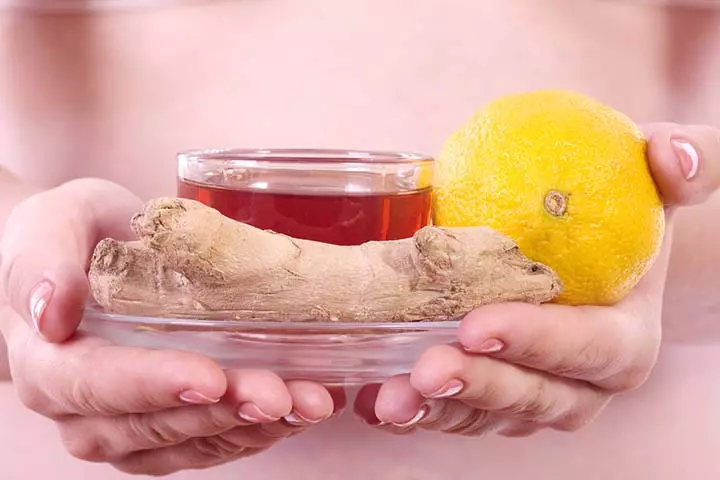
Image: Shutterstock
- Ginger green tea: Add one teaspoon of grated ginger to boiling water. Take the ginger-infused water into a cup and dip a bag of green tea. Leave for three minutes and add a dash of honey before sipping.
- Ginger clove tea: Boil water, and add one teaspoon of grated ginger and three cloves to it. Add some tea dust, and boil for a couple of minutes. You can take it with honey.
- Chamomile ginger tea: Bring water to boil, and add a teaspoon of grated ginger. Strain the concoction, add honey and dip one tea bag of chamomile.
 Quick tip
Quick tipWhile ginger tea is good, too much of it can be bad.
Are There Any Side Effects Of Ginger Tea?
You may want to ask whether ginger tea consumption can have an impact on baby development. There is no research to suggest its role. However, exercise caution before consuming and consult with your doctor. Ginger tea, when taken in recommended amounts, is safe. Additionally, too much of it can cause some other harmful effects as follows.
- Excessive consumption of ginger tea could lead to cardiac effects and heartburn (4).
- Impacts blood clotting ability when taken with blood-thinning medicines (11). It also interacts with anesthesia. So avoid taking the tea before surgeries (12).
- Ginger possesses muscle relaxant properties, and it also increases the risk of bleeding if taken with blood thinners (13) (14).
 Quick fact
Quick factFrequently Asked Questions
1. Does ginger tea induce labor?
There is no medical research that establishes the connection of ginger tea with labor and delivery. However, its excess intake is known to cause diarrhea.
2. Is lemon and ginger tea safe during pregnancy?
Yes, taking herbal teas during pregnancy is safe either in combination or as separate teas in moderate amounts. Herbal teas, such as lemon and ginger tea, are known for relieving nausea and morning sickness in the early months of pregnancy. While choosing ginger, go for organic produce to avoid pesticide residues.
3. How should I make ginger tea?
Peel and chop a two-inch piece of fresh ginger root. You can also grate the ginger if you prefer. Bring 4 cups of water to a boil in a pot or kettle. Add the ginger to the boiling water, reduce the heat and let it simmer for 10-15 minutes. This will allow the ginger to infuse its flavor and beneficial compounds into the water. Remove the pot from the heat and strain the tea using a fine mesh strainer or cheesecloth. If desired, sweeten the tea with honey or sugar to taste.
4. What would happen if I drink ginger tea every day during pregnancy?
Drinking ginger tea in moderation is harmless. However, excessive ginger tea is not considered safe (15).
5. Is ginger turmeric tea safe during pregnancy?
In moderation, turmeric is safe during pregnancy. However, taking significant doses of curcumin during pregnancy may cause bleeding or uterine contractions (16).
6. Can ginger tea affect the absorption of prenatal vitamins?
There is limited direct evidence linking ginger tea to reduced absorption of prenatal vitamins.
Consuming ginger tea during pregnancy may help relieve constipation, boost immunity, and aid in proper digestion. To enjoy the benefits of this condiment, consume ginger tea in moderate amounts. An excess intake of ginger tea may cause heartburn and increase the risk of bleeding due to its blood-thinning properties. You may always discuss if you can consume ginger with your doctor. In general, one gram of ginger per day is considered safe. If you are unsure how to include this condiment in your diet, we are sure that the recipes mentioned above would be helpful.
Infographic: Combine Various Herbs To Make Your Ginger Tea
Combining other beneficial herbs with ginger can produce refreshing teas that add zero caffeine to your diet. Consult your doctor if you have any doubts about the safe amounts of herbs during pregnancy. This infographic lists some recipes for pregnancy-safe herbal teas containing ginger. Illustration: Momjunction Design Team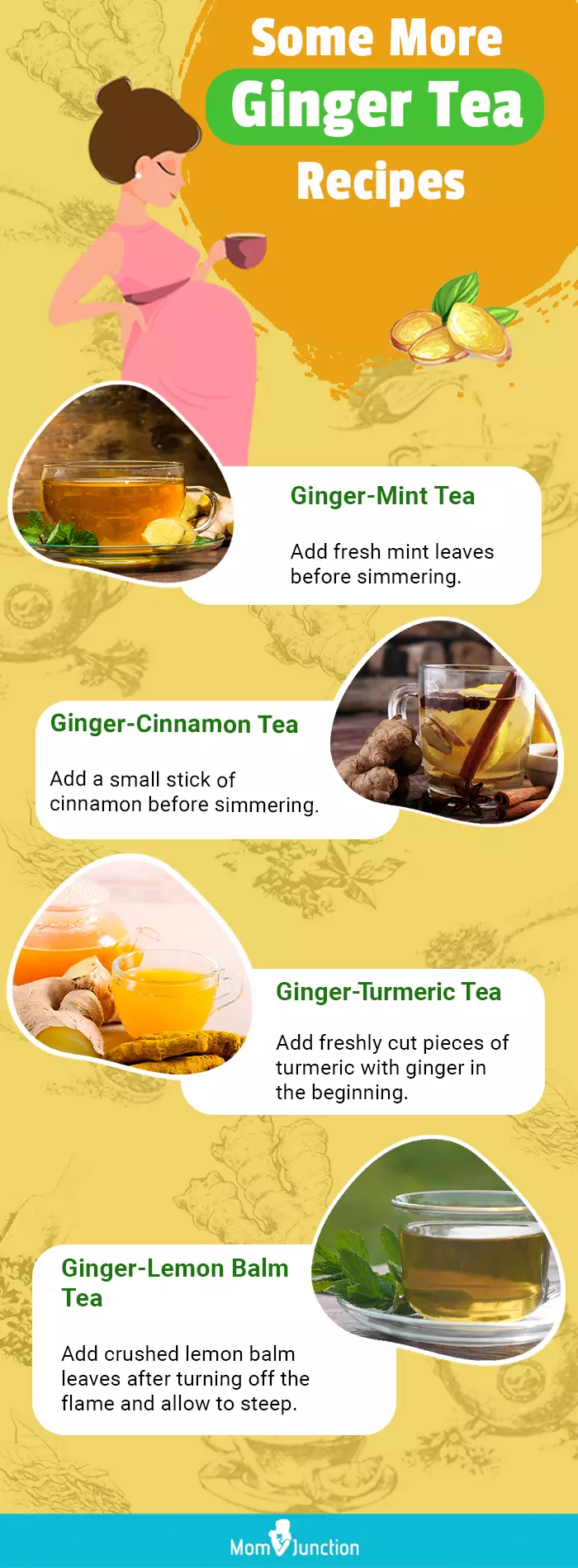
Illustration: Ginger Tea During Pregnancy: Benefits Safety Concerns & Risks

Image: Dall·E/MomJunction Design Team
Start your morning off right with a soothing cup of ginger tea! Learn how to make it in this video to help ease morning sickness.
Personal Experience: Source
MomJunction articles include first-hand experiences to provide you with better insights through real-life narratives. Here are the sources of personal accounts referenced in this article.
i. My 1st trimester must-haves;https://elaine73.blogspot.com/2015/01/my-1st-trimester-must-haves.html
References
1. E. Ernst; Herbal medicinal products during pregnancy: are they safe; British Journal of Obstetrics and Gynaecology (2003)
2. Iñaki Lete & José Allué; The Effectiveness of Ginger in the Prevention of Nausea and Vomiting during Pregnancy and Chemotherapy; Integr Med Insights (2016)
3. Ginger – “Mother Nature’s 7-Up and Crackers!; University of Wisconsin Integrative Medicine Department Of Family Medicine
4. Ginger; Herbal Safety; The University Of Texas At El Paso (2018)
5. Ann M. Bode & Zigang Dong; Chapter 7 The Amazing and Mighty Ginger; Herbal Medicine: Biomolecular and Clinical Aspects. 2nd edition (2011)
6. Nafiseh Shokri Mashhadi et al.; Anti-Oxidative and Anti-Inflammatory Effects of Ginger in Health and Physical Activity: Review of Current Evidence; Int J Prev Med (2013)
7. Iñaki Lete and José Allué; The Effectiveness of Ginger in the Prevention of Nausea and Vomiting during Pregnancy and Chemotherapy; Integr Med Insights; NCBI (2016)
8. T Alasadi; Ginger and diabetics; Wasist University (2017)
9. Ginger; URMC
10. Antenatal Care Module: 12. Minor Disorders of Pregnancy; The Open University (2018)
11. Ginger; The Ohio State University.
12. Sukhminder Jit Singh Bajwa & Aparajita Panda; Alternative medicine and anesthesia: Implications and considerations in daily practice; Ayu (2012)
13. P S Upadhyay, B M Singh, M Kumar, HD Khanna; Effect of Ayurveda interventions in bronchial asthma and cerebral palsy; Page 52
14. Osteoarthritis; Penn State Hershey (2016)
15. Adrienne et al.,Ginger for nausea and vomiting of pregnancy; National Library of Medicine (2016)
15. Filardi et al.,Curcumin: Could This Compound Be Useful in Pregnancy and Pregnancy-Related Complications?; NIH (2020)
Community Experiences
Join the conversation and become a part of our nurturing community! Share your stories, experiences, and insights to connect with fellow parents.
Read full bio of Claudia Wilson
Read full bio of Swati Patwal
Read full bio of Rebecca Malachi
Read full bio of Dr. Joyani Das











